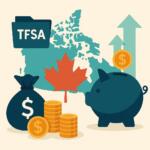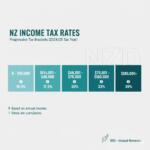Newzeland Finance
Your Trusted Guide to Money Matters in NZ

Welcome to Newzeland Finance, your trusted destination for making smarter financial decisions in New Zealand. Whether you’re exploring personal loans, comparing insurance brokers, or planning your long-term financial goals, this platform has been designed to simplify your journey. Our mission is to help Kiwis make confident choices about money — with expert tools, resources, and recommendations all in one place.
Finance Calculator
Establishment fee $215
Monthly service fee $2.50
Fixed rate 9.49%
Total to repay $0.00
Disclaimer: Results are a guide only and not an offer of finance. Calculations include establishment and service fees and are based on fixed interest for the chosen term.
Highest Rated Brokers
In a rapidly evolving financial environment, understanding your options has never been more important. From buying your first home to securing the right insurance coverage, or optimizing your retirement plan — we break it down and present New Zealand’s highest rated brokers for any financial needs!
Whether it’s for a new car, a dream holiday, or everyday purchases, Finance Now makes borrowing simple for Kiwis. Enjoy quick approvals, flexible repayment terms, and trusted service backed by over 20 years of experience in New Zealand. Apply online and get the support you need – when you need it.
Need a quick loan? Instant Finance offers fast, friendly service for Kiwis needing cash for cars, bills, or emergencies. With branches across NZ and flexible repayment options, Instant Finance makes borrowing simple and stress-free. Apply online or in-store and get approved in no time.
Enjoy interest-free shopping across Farmers stores nationwide with Farmers Finance. Whether you’re upgrading your wardrobe, homeware, or tech, Farmers Finance gives you the freedom to buy now and spread the cost over time. Easy application, secure payments, and flexible repayment terms – all designed for Kiwi shoppers.
Example New Zealand Home Loan Interest Rate Trend
Illustrative data only – not actual bank rates.
Why Newzeland Finance?
We created Newzeland Finance with one goal: to demystify financial services for everyday New Zealanders. With so many institutions, lenders, and advisors in the market, it’s hard to know who to trust or where to begin. That’s why our platform cuts through the noise — helping you compare, plan, and act with confidence.
Discover Latest NZ Finance Job here:
Latest New Zealand Finance Jobs
Browse a curated feed of recent finance roles in New Zealand. Use the filters to narrow down by city/region and work style, then click through to apply on LinkedIn.
We cover the full spectrum of financial topics relevant to individuals and families in Aotearoa, including:
Example Weekly Repayments by Loan Size
Based on sample 7% p.a. rate over 5 years – for illustration only.
Home Loans and Mortgages
Buying a home is one of the biggest financial decisions you’ll ever make. In New Zealand’s competitive property market, getting the right home loan — with the best interest rate and repayment structure — can save you tens of thousands of dollars over time.
🔗 Try our Home Loan Calculator to estimate your mortgage repayments and compare options.
Whether you’re a first-home buyer in Auckland or an investor in Christchurch, we help you understand:
- Fixed vs variable interest rates
- How much deposit you really need
- Bank vs non-bank lenders
- Refinance options
- How KiwiSaver can support your home ownership goals
We break it all down in plain language so you can move forward with confidence.
Read more about our financial news
- Income Tax Slabs and Rates for FY 2025-26: Complete Guide (India)
 Introduction to Income Tax Slabs and Rates for FY 2025-26 The Union Budget 2025 introduced important refinements to India’s income tax framework, further… Read more: Income Tax Slabs and Rates for FY 2025-26: Complete Guide (India)
Introduction to Income Tax Slabs and Rates for FY 2025-26 The Union Budget 2025 introduced important refinements to India’s income tax framework, further… Read more: Income Tax Slabs and Rates for FY 2025-26: Complete Guide (India) - 2025 TFSA Contribution Limit in Canada: Rules, Eligibility & How to Maximize Your Tax-Free Savings
 Canada’s Tax-Free Savings Account (TFSA) remains one of the most powerful and flexible wealth-building tools available to Canadians. Unlike an RRSP, contributions to… Read more: 2025 TFSA Contribution Limit in Canada: Rules, Eligibility & How to Maximize Your Tax-Free Savings
Canada’s Tax-Free Savings Account (TFSA) remains one of the most powerful and flexible wealth-building tools available to Canadians. Unlike an RRSP, contributions to… Read more: 2025 TFSA Contribution Limit in Canada: Rules, Eligibility & How to Maximize Your Tax-Free Savings - Best Equity Mutual Funds in India 2025: Top Funds Based on AUM
 Equity mutual funds remain one of the most effective vehicles for long-term wealth creation in India. By investing primarily in shares of publicly… Read more: Best Equity Mutual Funds in India 2025: Top Funds Based on AUM
Equity mutual funds remain one of the most effective vehicles for long-term wealth creation in India. By investing primarily in shares of publicly… Read more: Best Equity Mutual Funds in India 2025: Top Funds Based on AUM - Best Savings Accounts in New Zealand 2025: Compare Rates & Options
 New Zealand banks and financial institutions offer several types of Savings Accounts in New Zealand which are designed to suit different financial goals,… Read more: Best Savings Accounts in New Zealand 2025: Compare Rates & Options
New Zealand banks and financial institutions offer several types of Savings Accounts in New Zealand which are designed to suit different financial goals,… Read more: Best Savings Accounts in New Zealand 2025: Compare Rates & Options - How to Improve Your Credit Score in India (2025): Simple Steps and Tips
 Maintaining a healthy credit score is more important than ever in India, especially in 2025 when lenders are tightening risk checks and relying… Read more: How to Improve Your Credit Score in India (2025): Simple Steps and Tips
Maintaining a healthy credit score is more important than ever in India, especially in 2025 when lenders are tightening risk checks and relying… Read more: How to Improve Your Credit Score in India (2025): Simple Steps and Tips - Home Loan Interest Rates in India 2025: Comparison & Tips to Save
 Home Loan Interest Rates in India Overview Home loans represent one of the largest and longest financial commitments most Indian families will ever… Read more: Home Loan Interest Rates in India 2025: Comparison & Tips to Save
Home Loan Interest Rates in India Overview Home loans represent one of the largest and longest financial commitments most Indian families will ever… Read more: Home Loan Interest Rates in India 2025: Comparison & Tips to Save - Best Fixed Deposit Rates in India 2025: Top Banks & Smart Strategies
 Fixed deposits (FDs) remain one of the most dependable investment choices for Indian savers. Their appeal lies in guaranteed returns, simplicity, and insulation… Read more: Best Fixed Deposit Rates in India 2025: Top Banks & Smart Strategies
Fixed deposits (FDs) remain one of the most dependable investment choices for Indian savers. Their appeal lies in guaranteed returns, simplicity, and insulation… Read more: Best Fixed Deposit Rates in India 2025: Top Banks & Smart Strategies - Roth IRA vs 401(k): Differences and Benefits for 2025
 Roth IRAs and Roth 401(k)s are both popular retirement accounts funded with after-tax dollars. While you don’t receive an upfront tax deduction for… Read more: Roth IRA vs 401(k): Differences and Benefits for 2025
Roth IRAs and Roth 401(k)s are both popular retirement accounts funded with after-tax dollars. While you don’t receive an upfront tax deduction for… Read more: Roth IRA vs 401(k): Differences and Benefits for 2025 - How to Open a High-Yield Savings Account in the US (2025 Guide)
 High-Yield Savings Account in the US (HYSAs) allow you to earn significantly more interest on your cash compared to traditional savings accounts. They… Read more: How to Open a High-Yield Savings Account in the US (2025 Guide)
High-Yield Savings Account in the US (HYSAs) allow you to earn significantly more interest on your cash compared to traditional savings accounts. They… Read more: How to Open a High-Yield Savings Account in the US (2025 Guide) - Currency Converter NZ – 2025 Guide to Real-Time Exchange Rates & Tips
 Businesses: Use FX Tools (Forward Contracts & Hedging)
Businesses: Use FX Tools (Forward Contracts & Hedging) - Payday Loans NZ: The Complete 2025 Guide to Fast Cash, Instant Approval & Emergency Loans in New Zealand
 When unexpected expenses hit — car repairs, medical bills, urgent travel, power disconnections, or a temporary shortfall between pay cycles — many New… Read more: Payday Loans NZ: The Complete 2025 Guide to Fast Cash, Instant Approval & Emergency Loans in New Zealand
When unexpected expenses hit — car repairs, medical bills, urgent travel, power disconnections, or a temporary shortfall between pay cycles — many New… Read more: Payday Loans NZ: The Complete 2025 Guide to Fast Cash, Instant Approval & Emergency Loans in New Zealand - NZD to PHP: What You Need to Know — Converting New Zealand Dollars to Philippine Pesos
 If you’re dealing with cross-border finances between New Zealand and the Philippines, understanding the exchange rate between New Zealand Dollar (NZD) and Philippine… Read more: NZD to PHP: What You Need to Know — Converting New Zealand Dollars to Philippine Pesos
If you’re dealing with cross-border finances between New Zealand and the Philippines, understanding the exchange rate between New Zealand Dollar (NZD) and Philippine… Read more: NZD to PHP: What You Need to Know — Converting New Zealand Dollars to Philippine Pesos - Personal Loan Calculator NZ – 2025 Guide to Rates, Eligibility & Tips
 Personal Loan Calculator Loan Amount (NZD): Interest Rate (% per year): Loan Term (years): Repayment Frequency: MonthlyFortnightlyWeekly Extra Monthly Repayments (optional): Loan Start… Read more: Personal Loan Calculator NZ – 2025 Guide to Rates, Eligibility & Tips
Personal Loan Calculator Loan Amount (NZD): Interest Rate (% per year): Loan Term (years): Repayment Frequency: MonthlyFortnightlyWeekly Extra Monthly Repayments (optional): Loan Start… Read more: Personal Loan Calculator NZ – 2025 Guide to Rates, Eligibility & Tips - Home Equity Loan Rates (USA 2025): Complete Guide to Current Averages, Approval Factors, and How to Get the Lowest Rate
 Introduction Home equity loans remain one of the most powerful financing tools available to American homeowners in 2025. With record amounts of tappable… Read more: Home Equity Loan Rates (USA 2025): Complete Guide to Current Averages, Approval Factors, and How to Get the Lowest Rate
Introduction Home equity loans remain one of the most powerful financing tools available to American homeowners in 2025. With record amounts of tappable… Read more: Home Equity Loan Rates (USA 2025): Complete Guide to Current Averages, Approval Factors, and How to Get the Lowest Rate - Refinance Car Loan (USA): 2025 Complete Guide to Lower Rates, Reduce Payments & Maximize Savings
 Introduction to Refinance Car Loan Refinancing a car loan is one of the most practical and accessible financial moves Americans can make in… Read more: Refinance Car Loan (USA): 2025 Complete Guide to Lower Rates, Reduce Payments & Maximize Savings
Introduction to Refinance Car Loan Refinancing a car loan is one of the most practical and accessible financial moves Americans can make in… Read more: Refinance Car Loan (USA): 2025 Complete Guide to Lower Rates, Reduce Payments & Maximize Savings - Best Broadband Deals NZ – 2025 Guide to Fibre, Wireless, 4G/5G & the Cheapest ISP Plans
 Introduction Finding the best broadband deals in New Zealand has become a crucial part of managing household expenses, especially as internet use continues… Read more: Best Broadband Deals NZ – 2025 Guide to Fibre, Wireless, 4G/5G & the Cheapest ISP Plans
Introduction Finding the best broadband deals in New Zealand has become a crucial part of managing household expenses, especially as internet use continues… Read more: Best Broadband Deals NZ – 2025 Guide to Fibre, Wireless, 4G/5G & the Cheapest ISP Plans - Tax Rates NZ – 2025 Guide to Income Tax Brackets, PAYE, ACC & Take-Home Pay
 Introduction Understanding tax rates in New Zealand is essential for managing your personal finances, budgeting effectively, making informed employment decisions, and ensuring you’re… Read more: Tax Rates NZ – 2025 Guide to Income Tax Brackets, PAYE, ACC & Take-Home Pay
Introduction Understanding tax rates in New Zealand is essential for managing your personal finances, budgeting effectively, making informed employment decisions, and ensuring you’re… Read more: Tax Rates NZ – 2025 Guide to Income Tax Brackets, PAYE, ACC & Take-Home Pay - Compare Power Companies NZ – 2025 Guide to Electricity Prices, Plans, Providers & How to Get the Best Deal
 Introduction Comparing power companies in New Zealand has become one of the most impactful financial decisions Kiwi households can make, especially as electricity… Read more: Compare Power Companies NZ – 2025 Guide to Electricity Prices, Plans, Providers & How to Get the Best Deal
Introduction Comparing power companies in New Zealand has become one of the most impactful financial decisions Kiwi households can make, especially as electricity… Read more: Compare Power Companies NZ – 2025 Guide to Electricity Prices, Plans, Providers & How to Get the Best Deal - Car Insurance NZ – 2025 Guide to Cover Types, Costs, Excess & Choosing the Best Policy
 Introduction Car insurance in New Zealand plays a far more essential role than most drivers fully appreciate. While many Kiwis only think about… Read more: Car Insurance NZ – 2025 Guide to Cover Types, Costs, Excess & Choosing the Best Policy
Introduction Car insurance in New Zealand plays a far more essential role than most drivers fully appreciate. While many Kiwis only think about… Read more: Car Insurance NZ – 2025 Guide to Cover Types, Costs, Excess & Choosing the Best Policy - PAYE Calculator NZ – 2025 Guide to Income Tax, Deductions & Take-Home Pay
 Introduction Understanding PAYE tax is one of the most important parts of managing your income in New Zealand. Whether you’re a full-time employee,… Read more: PAYE Calculator NZ – 2025 Guide to Income Tax, Deductions & Take-Home Pay
Introduction Understanding PAYE tax is one of the most important parts of managing your income in New Zealand. Whether you’re a full-time employee,… Read more: PAYE Calculator NZ – 2025 Guide to Income Tax, Deductions & Take-Home Pay - Credit Cards NZ – 2025 Guide to Rewards, Interest Rates, Balance Transfers & Choosing the Best Card
 Introduction Credit cards have become one of the most widely used financial tools across New Zealand, offering convenience, rewards, and short-term borrowing power… Read more: Credit Cards NZ – 2025 Guide to Rewards, Interest Rates, Balance Transfers & Choosing the Best Card
Introduction Credit cards have become one of the most widely used financial tools across New Zealand, offering convenience, rewards, and short-term borrowing power… Read more: Credit Cards NZ – 2025 Guide to Rewards, Interest Rates, Balance Transfers & Choosing the Best Card - NZ School Holidays 2024 – Term Dates, Public Holidays, Calendar & Family Planning Guide
 Introduction School holidays in New Zealand play a central role in planning family life, budgeting, and work schedules, especially for households juggling multiple… Read more: NZ School Holidays 2024 – Term Dates, Public Holidays, Calendar & Family Planning Guide
Introduction School holidays in New Zealand play a central role in planning family life, budgeting, and work schedules, especially for households juggling multiple… Read more: NZ School Holidays 2024 – Term Dates, Public Holidays, Calendar & Family Planning Guide - Life Insurance NZ – Complete 2025 Guide to Policies, Prices, and Choosing the Right Cover
 Introduction to Life Insurance in NZ Life insurance in New Zealand is one of those topics people often push to the bottom of… Read more: Life Insurance NZ – Complete 2025 Guide to Policies, Prices, and Choosing the Right Cover
Introduction to Life Insurance in NZ Life insurance in New Zealand is one of those topics people often push to the bottom of… Read more: Life Insurance NZ – Complete 2025 Guide to Policies, Prices, and Choosing the Right Cover - Term Deposit Rates NZ – Compare Returns, Banks & Best Rates (2025 Guide)
 Introduction Term deposits continue to be one of the most popular low-risk investment options for everyday New Zealanders, especially during periods of economic… Read more: Term Deposit Rates NZ – Compare Returns, Banks & Best Rates (2025 Guide)
Introduction Term deposits continue to be one of the most popular low-risk investment options for everyday New Zealanders, especially during periods of economic… Read more: Term Deposit Rates NZ – Compare Returns, Banks & Best Rates (2025 Guide)

Personal Loans for Every Need
Need to cover an unexpected expense, pay off high-interest debt, or fund a major purchase like a car or renovation? Personal loans in New Zealand are accessible — but choosing the right lender makes all the difference.
🔗 Explore our Personal Loan Guide for comparisons, tips, and loan calculators.
In our personal loan section, we cover:
- How to qualify for a loan in NZ
- Typical interest rates in 2025
- How to boost your credit score
- Unsecured vs secured loans
- Hidden fees to watch out for
We compare top lenders like Instant Finance, Finance Now, Harmoney, and more — ensuring you find the best deal for your needs and budget.
Insurance: Protect What Matters
Kiwis are increasingly aware of the need to protect what matters — from homes and vehicles to health and life. But navigating the world of insurance in New Zealand can feel like a maze.
🔗 Visit our Insurance Brokers page to find a vetted broker who works for you — not the insurer.
Our insurance section helps you:
- Understand different types of cover (life, car, contents, health)
- Compare premiums and exclusions
- Choose between direct insurers and brokers
- Navigate claims and disputes
- Save by bundling or reviewing policies annually
Working with an experienced broker can often uncover deals you won’t find on comparison sites — and they can guide you through the fine print.
Financial Planning Made Easy
Whether you’re planning for retirement, growing your wealth, or just trying to get out of debt — a financial planner can help create a roadmap tailored to you. But not all planners are created equal.
🔗 Check out our Finance Planner section to see how professional advice can support your financial goals.
Our financial planning content covers:
- How to set realistic financial goals
- Budgeting tools for daily management
- Saving for retirement and KiwiSaver strategies
- Investment basics (ETFs, property, shares)
- Tax minimization and estate planning
We believe financial freedom starts with a clear plan — and the right advice makes that path easier to walk.
Featured Tools and Resources
At Newzeland Finance, we provide smart, user-friendly tools to help you take control of your money:
- ✅ Home Loan Calculator – Calculate your mortgage repayments quickly
- ✅ Loan Comparison Charts – See side-by-side rates from leading NZ lenders
- ✅ Budget Planner Templates – Track your income and spending
- ✅ Insurance Checklist – Know what you’re covered for — and what you’re not
- ✅ Finance Glossary – Understand confusing financial terms instantly
All tools are free to use, mobile-friendly, and updated regularly for accuracy.
Navigating the NZ Financial Landscape in 2025
The world of finance is always evolving. In New Zealand, interest rates, lending regulations, and insurance standards continue to shift. We keep a close eye on changes from the Reserve Bank, government policies, and consumer protection agencies — so you stay informed.
Some key trends in 2025:
- Interest rates have stabilized after rapid hikes in 2022–2023, offering better lending conditions
- BNPL (Buy Now, Pay Later) services are more regulated, requiring better consumer education
- Online-only banks and digital lenders are rising in popularity — but also come with risks
- Climate change is influencing home insurance premiums and coverage availability
- KiwiSaver engagement is growing, but many still lack a long-term investment strategy
We help you adapt, plan, and make informed decisions in this shifting environment.
Example Breakdown of Finance Topics on Our Site
Illustrative mix of content areas you cover.
Our Commitment to Kiwi Financial Wellbeing
We’re not here to sell you anything — we’re here to empower you. We believe every New Zealander deserves financial clarity, regardless of income, background, or experience.
Here’s what sets us apart:
- Free, unbiased information
- Trusted financial education
- Practical tools you can use today
- Up-to-date NZ-specific content
- Links to verified service providers only
We’re your partner in navigating life’s big (and small) money questions.
Example NZD vs USD Exchange Rate
Illustrative only – not real historical data.
Let’s Make Money Simple
Managing your finances shouldn’t be stressful. With Newzeland Finance, it doesn’t have to be.
Our team is constantly expanding our library of tools, insights, and reviews to reflect what matters most to you. Whether you’re starting your financial journey or optimizing your existing assets, we’re here to help — clearly, simply, and independently.
Ready to Get Started?
Explore our key pillars:
- 🏡 Home Loan Calculator NZ
- 💳 Personal Loans in New Zealand
- 🛡️ Top Insurance Brokers
- 📈 Find a Financial Planner
Still have questions? Reach out to us or check our upcoming articles, where we’ll cover more niche topics like debt consolidation, business finance in NZ, and tax tips for freelancers
FAQs
Personal finance (individual budgeting and saving)
Corporate finance (how businesses manage their finances)
Public finance (government spending and taxation)
Corporate finance
Investments
Financial institutions and markets
Personal finance
Character (trustworthiness)
Capacity (ability to repay)
Capital (assets and savings)
Collateral (security offered for loans)
Banking
Insurance
Investments
Real estate
Character
Capacity
Capital
Collateral
Conditions (economic factors affecting repayment)
50% of income goes to needs,
30% to wants,
20% to savings or debt repayment.
$2,000 goes to essentials,
$1,200 to lifestyle choices,
$800 to savings or debt payoff.
70% expenses,
10% saving,
10% investing,
10% giving or personal development.



